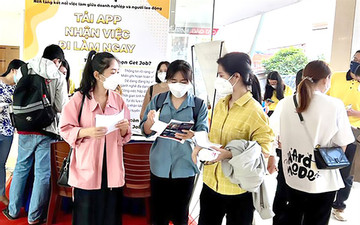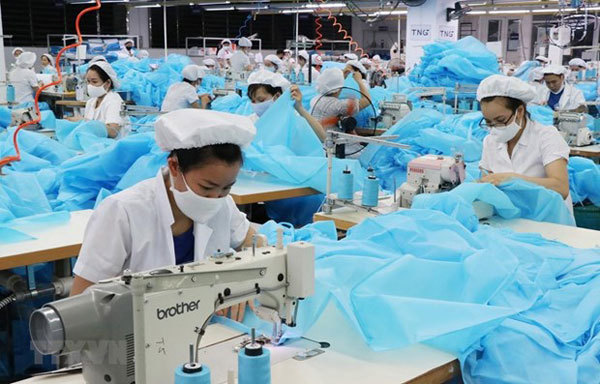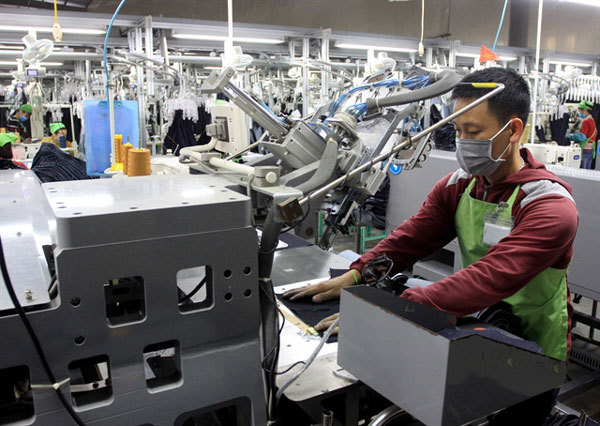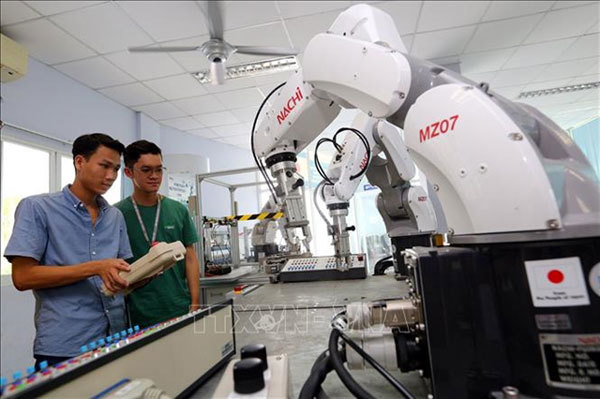- © Copyright of Vietnamnet Global.
- Tel: 024 3772 7988 Fax: (024) 37722734
- Email: evnn@vietnamnet.vn
labour market
Update news labour market
Labour shortage looms as year-end approaches
Seasonal workers are often in demand during the year-end, but many companies are saying they struggle to find skilled workers.
Not enough jobs but not enough workers either: paradox plagues industry
The labour market faces a paradox: many workers are unemployed since their factories lack orders, but at the same time businesses seeking to expand cannot find enough labour.
Over 1.4 million people become unemployed in 2021 due to COVID-19: GSO
More than 1.4 million Vietnamese were unemployed in 2021, up 203,700 from the previous year or 17 percent, due to impacts of the worst-ever fourth wave of COVID-19 infections for months, data from the General Statistics Office showed.
Need for digital transformation personnel sees sharp rise: report
As firms are accelerating digital transformation, the need for information technology (IT)-related roles, namely data engineer, infrastructure engineer, or chief technology officer (CTO), is also rising significantly.
Mindset change needed to achieve gender equality in labour market: ILO
A new research brief shows that the COVID-19 pandemic has not only exacerbated existing inequalities but also created new gender gaps, the International Labour Organisation (ILO) in Vietnam has said,
Labour market faces mounting challenges
Vietnam is becoming an attractive destination for foreign investors as several of the world’s largest technology corporations plan to shift their production chains to Vietnam,
Labour demand up in the south after Tet as economy recovers
Demand for workers in HCM City and other manufacturing hubs in the south has been high and rising after the Tet (Lunar New Year) holidays driven by a business recovery as COVID-19 recedes.
Universities offer new majors for 2021-22 academic year
A number of universities in the country will launch new majors for the 2021-2022 academic year to meet labour market demand.
Over five million employees lose jobs due to COVID-19
 Multiple businesses in Vietnam suspended or scaled down their operations, and over five million employees nationwide lost their jobs in the first five months of 2020 as a result of the coronavirus pandemic,
Multiple businesses in Vietnam suspended or scaled down their operations, and over five million employees nationwide lost their jobs in the first five months of 2020 as a result of the coronavirus pandemic,
ASEAN ministers talk impacts of COVID-19 on labour, employment
 Labour ministers from 10 member countries of the Association of Southeast Asian Nations (ASEAN) had a video conference on May 14 to look into impacts of COVID-19 on labour and employment.
Labour ministers from 10 member countries of the Association of Southeast Asian Nations (ASEAN) had a video conference on May 14 to look into impacts of COVID-19 on labour and employment.
Nearly 21 million workers in ASEAN-6 to lose jobs due to pandemic
 Analysts from BofA Global Research estimated that about 7 percent of total employees, or 20.7 million, in ASEAN-6 economies could be laid off due to the COVID-19.
Analysts from BofA Global Research estimated that about 7 percent of total employees, or 20.7 million, in ASEAN-6 economies could be laid off due to the COVID-19.
Recruitment market will come back when pandemic ends
 Experts predict that once the COVID-19 epidemic is under control, recruitment needs will rapidly increase. Ngo Thi Ngoc Lan, Regional Director of Navigos Search, talks about the situation and how workers and employers need to prepare for the future.
Experts predict that once the COVID-19 epidemic is under control, recruitment needs will rapidly increase. Ngo Thi Ngoc Lan, Regional Director of Navigos Search, talks about the situation and how workers and employers need to prepare for the future.
Vietnam makes significant progress in labour quality
 Minister of Labour, Invalids and Social Affairs Dao Ngoc Dung spoke to Vietnam News Agency about his ministry's achievements in 2019 and measures it plans to implement to reach its goals in 2020.
Minister of Labour, Invalids and Social Affairs Dao Ngoc Dung spoke to Vietnam News Agency about his ministry's achievements in 2019 and measures it plans to implement to reach its goals in 2020.
HCM City needs to fill 320,000 job vacancies next year
 There will be more than 320,000 job vacancies in HCM City through next year, including for 135,000 new positions, according to the city Human Resources Forecast and Labour Market Information (Falmi) Centre.
There will be more than 320,000 job vacancies in HCM City through next year, including for 135,000 new positions, according to the city Human Resources Forecast and Labour Market Information (Falmi) Centre.
Vocational training sector seeks to develop
 Vietnam's vocational training sector is seeking to fix its long-term problems and develop into a strength.
Vietnam's vocational training sector is seeking to fix its long-term problems and develop into a strength.
VN labour market adjusting to disruptive change
 Disruptive change is leading to the re-regulation of work and employment around the world, including in Vietnam, Gregor Murray of the University of Montreal in Canada, said.
Disruptive change is leading to the re-regulation of work and employment around the world, including in Vietnam, Gregor Murray of the University of Montreal in Canada, said.
Labour market needs balanced supply and demand
 Nguyen Thanh Nhan, deputy director of Ha Noi Department of Labour and Social Affairs, speaks to the newspaper Hà Nội Mới (New Hà Nội) on the need to have high quality workforce.
Nguyen Thanh Nhan, deputy director of Ha Noi Department of Labour and Social Affairs, speaks to the newspaper Hà Nội Mới (New Hà Nội) on the need to have high quality workforce.
Vietnam ready to make labour market effective
The share of job seekers who are using formal channels is growing in Vietnam, but still accounts for a minority of the job search channels used. Most jobs in the country today are filled through personal contacts,
Fairer sharing of economic benefits needed
VietNamNet Bridge – ILO Viet Nam Country Director, Chang-Hee Lee, explains the impact minimum wage can have on the country’s economy.
Work even as you study, job experts advise
Experts in Human Resources (HR) affirm that students with some work experience will find it easier to get jobs after graduating than those who only study to pass the examinations.



















